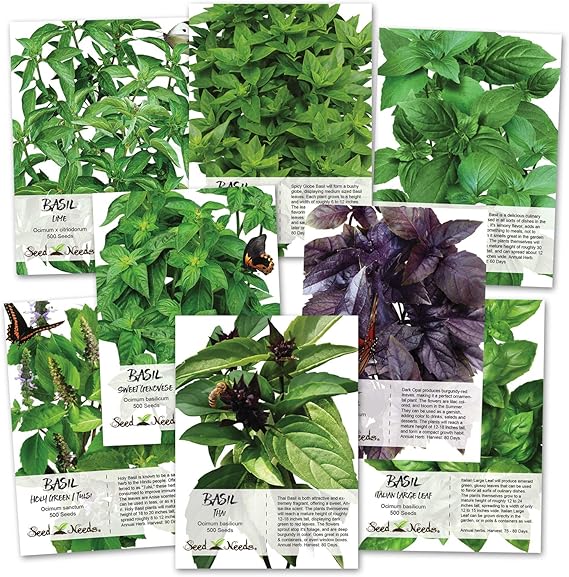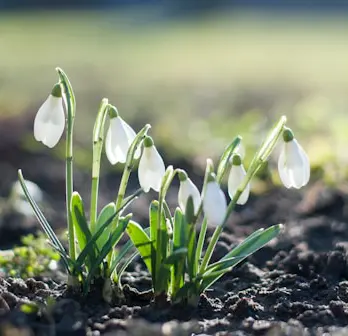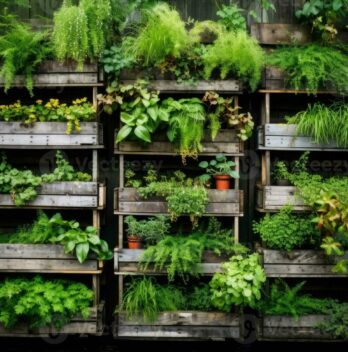If you are interested in having a plant with a great scent coupled with a lovely flavor in your garden, then fresh basil should be considered. Basil is a versatile herb that is both easy to grow and very nutritious when consumed. Basil water requirements are however very important for the smooth growth of this plant.
Basil is a very tender annual herb with a likeness for consistently moist
There are some key considerations that determine how much water should be added to the plant when being grown. So, this article gives insight into the basil plant, explaining the water requirements of the plant.
Watering requirements for young tender basil and established basil plants are quite different. Similarly, there’s a different water requirement when growing indoors and when growing outdoors. All of these will be considered here.
Water Requirements Of Basil Plant At Seedling Stage
If you desire to begin your basil plant by growing seedlings, you must pay very close attention to the water you add to these plants. At the seedling stage, basil may be planted in containers or introduced straight into the ground.
The watering of basil seedlings is largely mild and does not require deep watering like adult plants. All you are required to do is the damping of the

For the best possible result, you should use a sprayer or plant mister to properly moisten the very top layer of the
Read More About:
Basil Water Requirements For Established Plant
The water requirement for grown and established basil plants is more intense than for young seedlings. Where the established basil plant is grown outside in the garden, then you should water every 3 to 4 days. This will be largely dependent on the amount of rainfall where the plant is grown.
Whereas an established basil plant is grown outside in a pot, then it should be watered every 1 or 2 days, depending however on the location. Where the pot or container is placed under a shade, then evaporation is reduced, and every 2 days should be fine.
Basil generally likes to stay moist and will thrive in about 1 inch of water every week. You should therefore water deeply so as to keep the roots growing deep in the
Basil Seed Packet Collection (8 Individual Seed Packets) Non-GMO Seeds by Seed Needs

Watering Frequency When Growing Basil Plant Indoors
When growing basil plants indoors, you must pay very close attention to the plant. It is usually best to water when the top half-inch of the
On dark, cloudy, and winter days, you may need to water less often as dryness gets increasingly difficult to attain. You should also note that plants that are grown in small pots require more frequent watering than those grown in large pots.
Growing basil plant indoors offers you a great advantage of having this plant both in summer and winter. The weather condition outside this has very little effect on the plant.
Watering Frequency When Growing Basil Plant Outdoors
When growing the basil plant outdoors, you will be required to provide the plant with between 1 and 1.5 inches of water every week. This water may come naturally from rainfall or may be provided by you artificially.
As such, the frequency of rainfall, the amount of sunlight, and the weather condition all play a vital role in determining the amount of water that should be added to the plant. As the roots grow even deeper into the ground, you may need to water more regularly.
Where you wish to control how much water evaporates from the
When you however decide to mulch with organic materials, be careful to keep the mulch a little bit away from the plant’s crown. Likewise do not build too much mulch around the stem as this may affect the plant’s growth.
Factors That Affect Basil Plant Watering – Basil Water Requirements
The following are some factors That affect basil plant watering plans:
- Drainage:
Soil drainage is one of the biggest determinants of how much water the plant will require to do well. Where basil is grown in poorly drainedsoil , water may end up drowning the root causing root rot. Proper drainage allows for good water and oxygen to the root. - Vermiculite: Where you notice that the
soil where you planted your basil plant keeps drying out, then you may consider the use of vermiculite. Vermiculite is a granular material that is great for growing basil and aids in water retention. - Environment: This is another major factor that may affect how much water your plant requires. When you plant in drier environments with lots of sunlight, the
soil will dry out fast and you may need to water more regularly. Planting in a shaded area may solve this problem.

Conclusion On Basil Water Requirements
Basil as we have seen above requires sufficient water to grow properly. Care must however be taken not to add too much water or too little water to the plant.
FAQ’s
How do I know if my basil is over watered?
Where your basil is over watered, you may begin to notice the following signs: yellow leaves starting from the lower leaves and working upwards, drooping and wilting leaves, stunted growth of the plant, roots become mushy and brown or black, with an obnoxious odor emitting from the soil.
Can basil get too much water?
Yes, the basil plant can get too much water. This is especially the case when the soil is not one that allows for good drainage. While basil requires a good supply of water, this must be regulated so as to ensure that the soil does not get wet. When the soil gets wet, the tendency of the plant suffering from over watering becomes high.
How much to water basil?
Basil generally likes to stay moist and as such, they require no less than 1 inch of water every week. You should also water deeply at least once a week to keep the roots growing deep moist. Where the plant is grown in containers, the need for watering increases.
How often to water basil plant?
Basil plants should be watered regularly, depending on the weather condition, soil drainage condition, whether planted outdoors or indoors. You should however ensure that in total, the plant gets no less than 1 inch of water every week.




